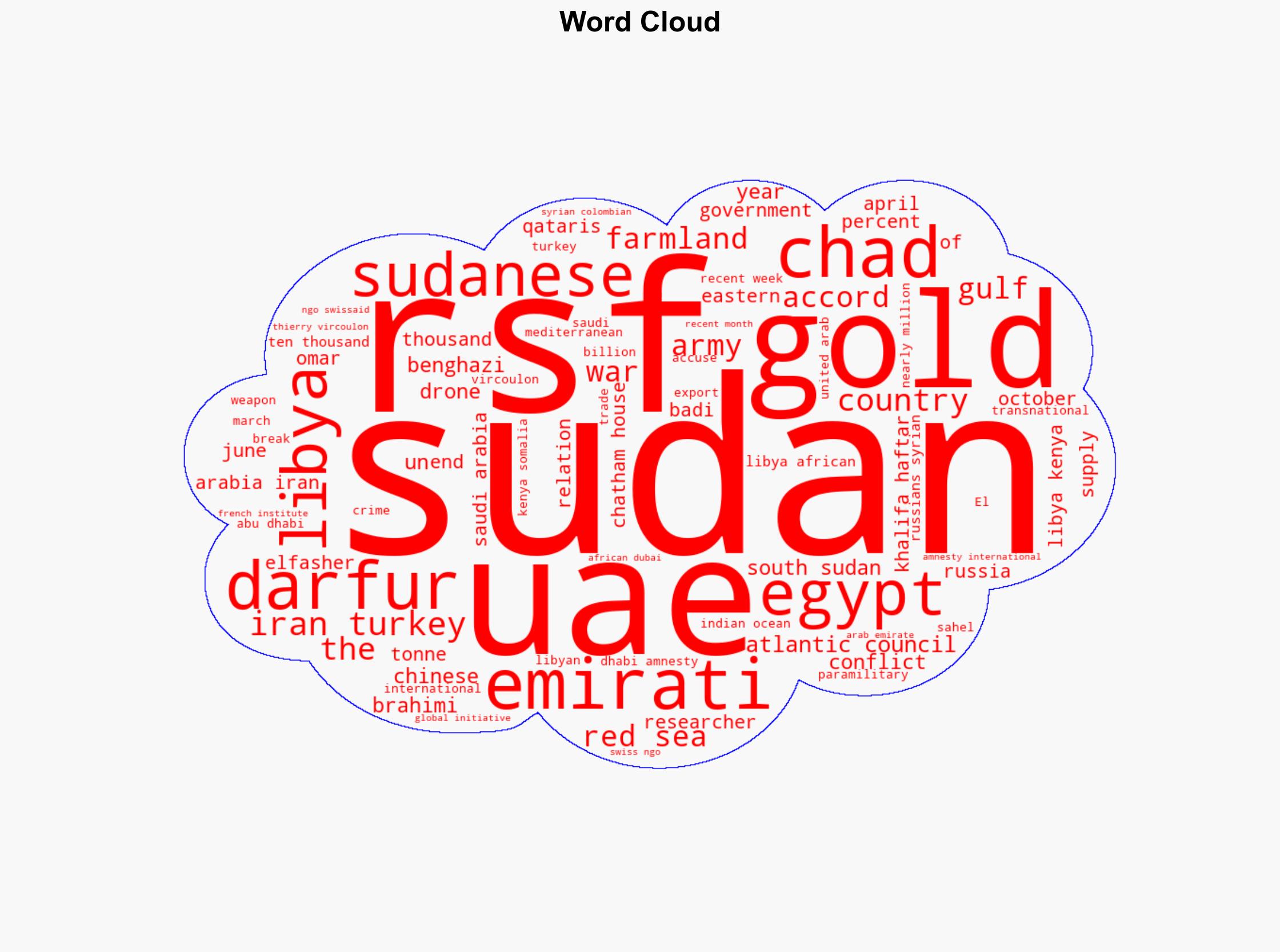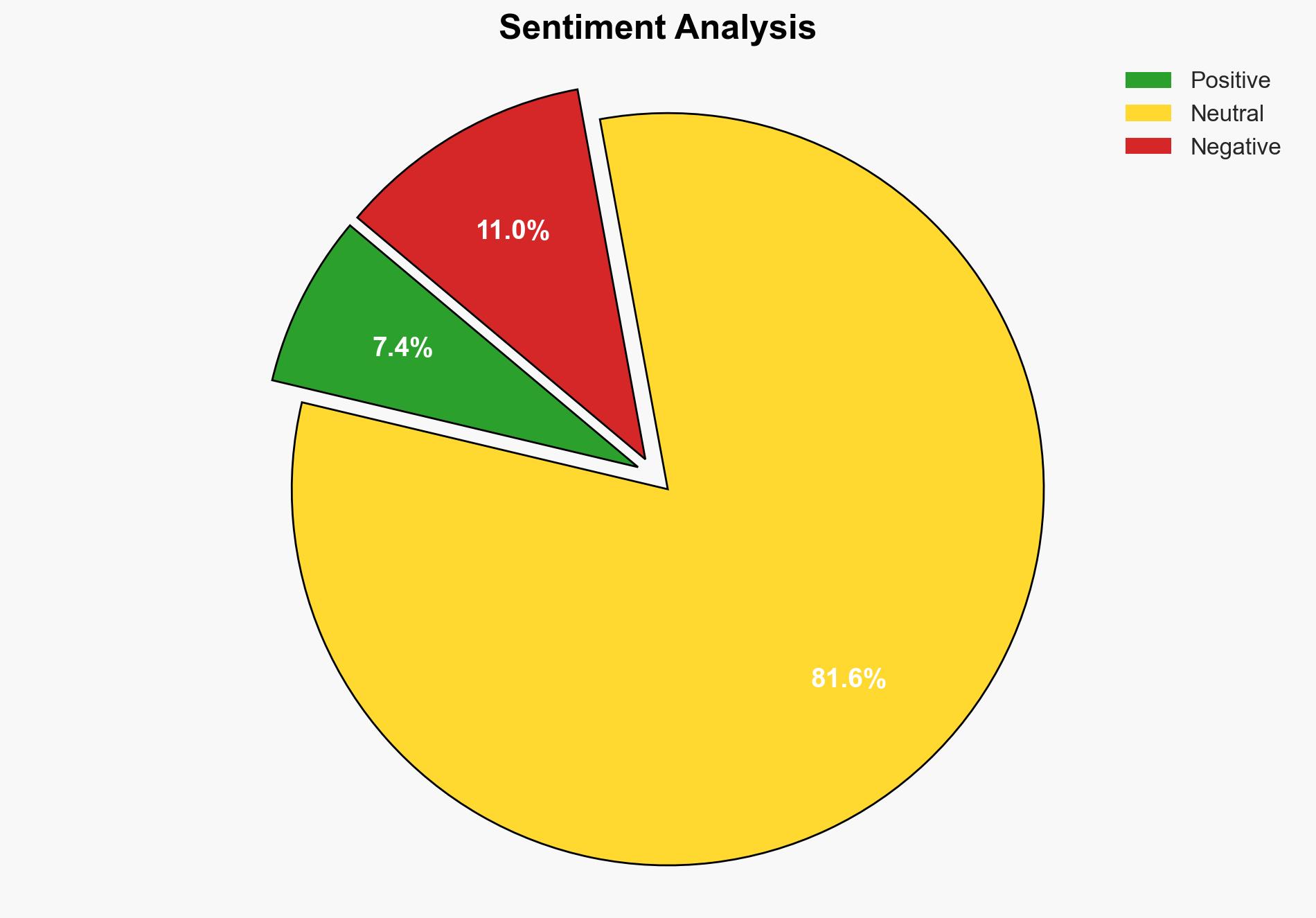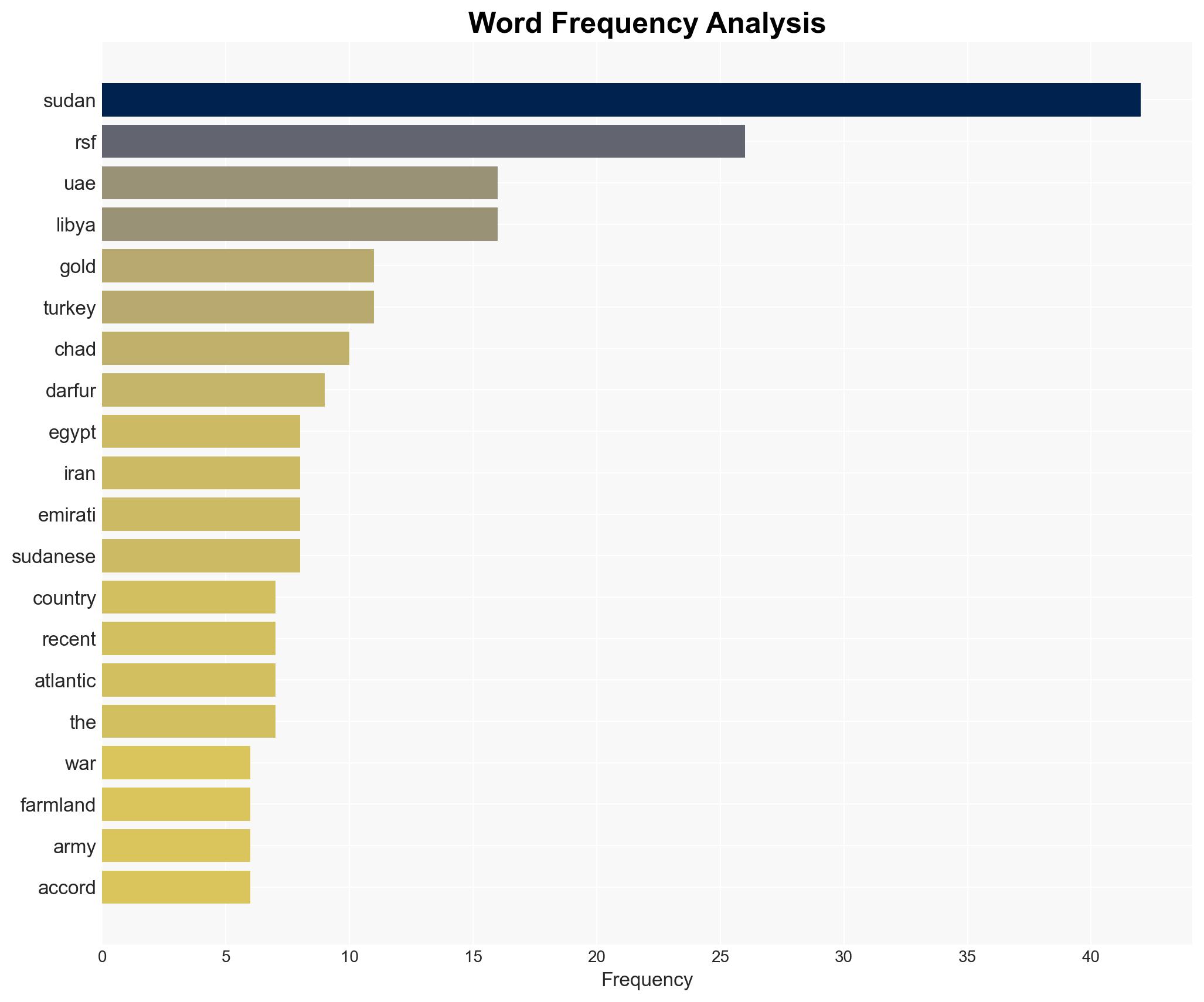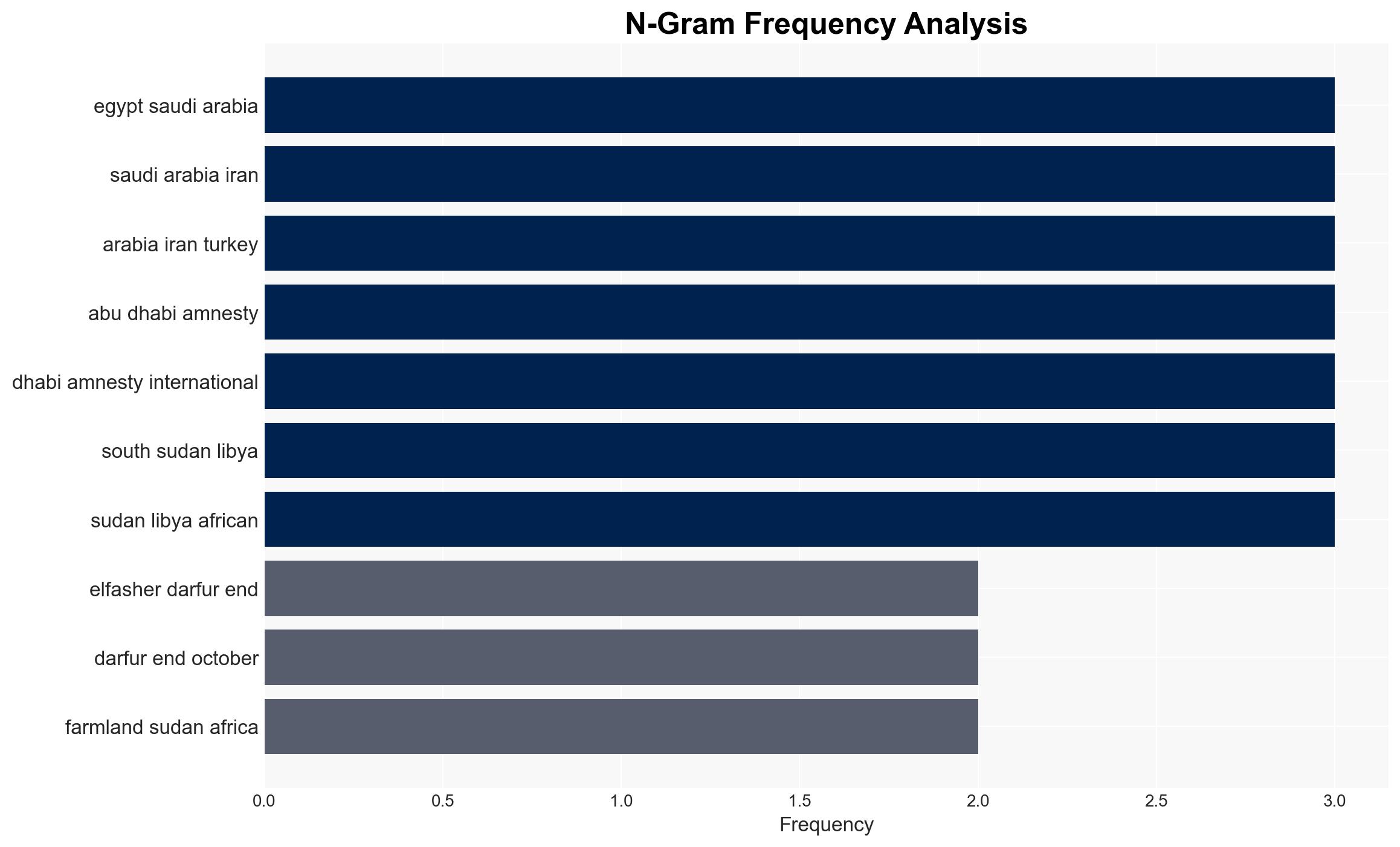Scramble for Sudans resources fuels brutal civil war – Digital Journal
Published on: 2025-11-21
AI-powered OSINT brief from verified open sources. Automated NLP signal extraction with human verification. See our Methodology and Why WorldWideWatchers.
Intelligence Report:
1. BLUF (Bottom Line Up Front)
The ongoing civil war in Sudan is primarily driven by external powers vying for control over the country’s abundant natural resources, particularly gold and agricultural land. The most supported hypothesis is that foreign involvement, particularly by the UAE, is exacerbating the conflict through direct and indirect support of the RSF. Confidence Level: Moderate. Recommended action: Increase diplomatic pressure on external actors to cease support for armed factions and promote a multilateral peace process.
2. Competing Hypotheses
Hypothesis 1: The civil war in Sudan is primarily fueled by internal power struggles between the regular army and the RSF, with foreign involvement being a secondary factor.
Hypothesis 2: The conflict is largely driven by foreign powers seeking control over Sudan’s resources, with the RSF receiving substantial support from the UAE, thereby intensifying the conflict.
Assessment: Hypothesis 2 is more likely given the evidence of UAE’s significant financial and logistical support to the RSF, as well as the strategic interests of various foreign powers in Sudan’s resources and geopolitical position.
3. Key Assumptions and Red Flags
Assumptions: Foreign powers have the capability and intent to influence the conflict significantly. The RSF’s operational capacity is heavily reliant on external support.
Red Flags: Denials of support by foreign governments despite evidence to the contrary. Potential misinformation campaigns by involved parties to obscure true intentions and actions.
4. Implications and Strategic Risks
The conflict could lead to further regional destabilization, impacting neighboring countries and international trade routes. There is a risk of increased humanitarian crises and refugee flows. Economic disruptions could occur due to instability in gold and agricultural markets. Potential for cyber and informational warfare as parties seek to control narratives and influence international opinion.
5. Recommendations and Outlook
- Engage in diplomatic efforts to pressure foreign actors to cease support for armed factions.
- Promote multilateral peace talks involving regional and international stakeholders.
- Enhance monitoring of arms flows and financial transactions to prevent further escalation.
- Best Case: Successful diplomatic intervention leads to a ceasefire and peace negotiations.
- Worst Case: Escalation of conflict with increased foreign military involvement and regional spillover.
- Most Likely: Continued conflict with intermittent foreign intervention and humanitarian deterioration.
6. Key Individuals and Entities
Khalifa Haftar, Alia Brahimi, Emadeddin Badi
7. Thematic Tags
Regional Focus, Regional Focus: Sudan, UAE, Egypt, Saudi Arabia, Libya
Structured Analytic Techniques Applied
- Causal Layered Analysis (CLA): Analyze events across surface happenings, systems, worldviews, and myths.
- Cross-Impact Simulation: Model ripple effects across neighboring states, conflicts, or economic dependencies.
- Scenario Generation: Explore divergent futures under varying assumptions to identify plausible paths.
- Network Influence Mapping: Map influence relationships to assess actor impact.
- Narrative Pattern Analysis: Deconstruct and track propaganda or influence narratives.
Explore more:
Regional Focus Briefs ·
Daily Summary ·
Support us





